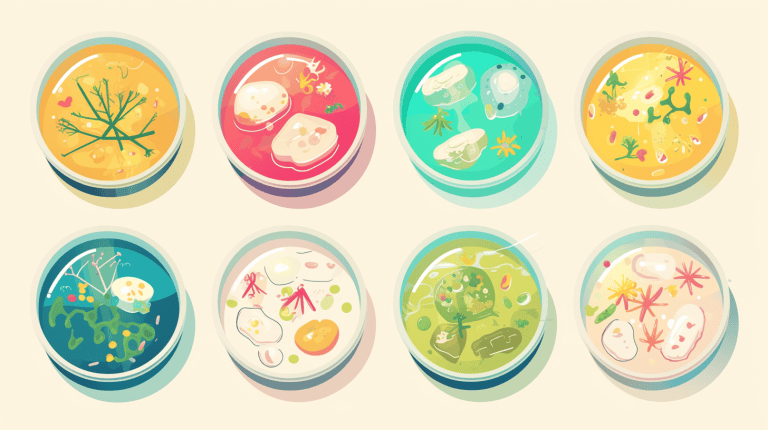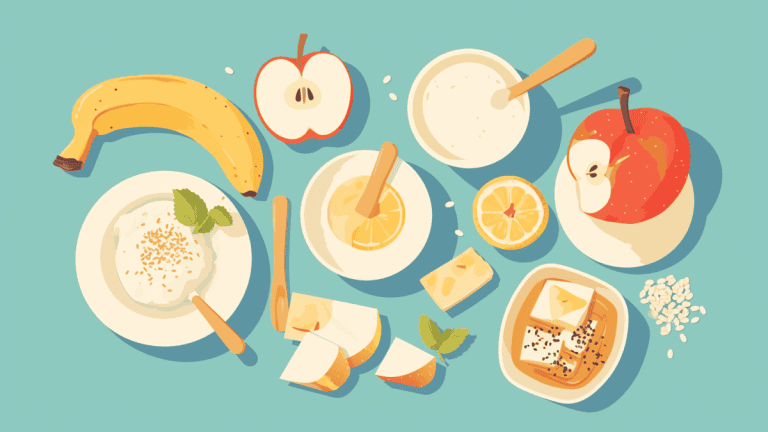What Are Probiotics? Ancient Origins, Modern Health Benefits

Probiotics are live microorganisms, such as bacteria or yeast, that offer health benefits when consumed or applied to the body. You can find them naturally in fermented foods like yogurt, kimchi, sauerkraut, and kefir. Probiotics are also available in dietary supplements.
The Origin of Probiotics
The modern understanding of probiotics started with a scientist named Élie Metchnikoff. In the early 1900s, he observed something interesting – Bulgarian peasants who consumed large amounts of yogurt seemed to enjoy unusually long lifespans. This led him to theorize that specific bacteria within the yogurt were positively influencing their gut health and overall well-being.
In his book ‘The Prolongation of Life,’ Élie wrote, “the dependence of the intestinal microbes on the food makes it possible to adopt measures to modify the flora in our bodies and to replace the harmful microbes with useful microbes.”
His hunch was right. In 1905, scientist Stamen Grigorov isolated the specific strain responsible for Bulgarian yogurt’s fermentation – Lactobacillus bulgaricus. It became the first formally recognized probiotic bacteria.
This discovery sparked a wave of research in the field. Scientists have since identified a wide variety of beneficial bacterial strains beyond those found in yogurt. While the complex ways probiotics interact with our bodies are still being studied, they appear to play a crucial role in maintaining a healthy gut microbiome.
Good Bacteria
Imagine your gut as a bustling city with a diverse population of bacteria. Some of these residents are unruly troublemakers, while others are hardworking citizens keeping things balanced. Probiotics are like the neighborhood watch of your gut microbiome. Here’s why they’re important:
Immunity Boost: Probiotics act like a shield for your body. They can help keep harmful bacteria at bay, train your immune system to be more efficient, and reduce your risk of infections. Think of them as the microscopic defenders of your health.
Sleep Support: A healthy gut can make all the difference when it comes to sleep. Probiotics can promote calmness within your digestive system, helping you drift off to a restful night with ease.
Mood Lifter: Did you know your gut and mood are connected? Probiotics can have a positive impact on your mental health by influencing the production of neurotransmitters that affect mood and stress levels. Consider them your gut’s little mood-boosting cheerleaders.
Can Your Gut Handle the Good Guys?
Okay, probiotics are generally awesome for most of us, but like anything good, there can be a few hiccups along the way.
Sometimes when those good bacteria move in, they might throw a little housewarming party in your gut. This could mean some temporary gas, bloating, or loose stools. Don’t worry, things usually calm down once everyone settles in.
If your immune system is on the fritz, you’re super sick, or just had surgery, it’s a good idea to play it safe and have a chat with your doctor before starting any probiotics.
Choosing Your Probiotic Supplements
Looking for an additional dose of probiotics through supplements? Here’s how to make an informed choice:
- Know Your Needs: Do you want to boost digestion, strengthen your immune system, or address another specific health concern? Research the probiotic strains shown to be beneficial for your desired outcome.
- Prebiotics: Look for supplements that include prebiotics, a type of fiber that feeds good bacteria in your gut. This helps them thrive and flourish, maximizing their potential benefits.
- CFU Count: Aim for probiotic supplements with a CFU count in the billions. This higher density increases the likelihood of the bacteria successfully colonizing your gut.
Natural Ways To Increase Your Probiotic Intake
Supplements aren’t the only way to get your probiotics. Load up on these yummy fermented foods:
- Yogurt: Go for plain, unsweetened yogurt with live cultures.
- Sauerkraut: Fermented cabbage with a delicious tang.
- Kimchi: A spicy, flavorful Korean take on fermented veggies.
- Miso: This paste adds a savory punch to soups and dishes.
- Kefir: Like a drinkable, tangier yogurt.
- Kombucha: A fizzy, fermented tea (just watch the sugar content).
The Bottom Line
Probiotics are those fascinating little organisms working tirelessly behind the scenes to keep you healthy. Here’s the gist:
- They’re good bacteria, essential for a balanced gut.
- They do everything from boosting immunity to helping you sleep better.
- Choose supplements wisely – match strains to your needs.
- You can also obtain probiotics naturally from fermented foods.
So, next time you see yogurt in the fridge, give a shout-out to those probiotics making your gut a happier place.


